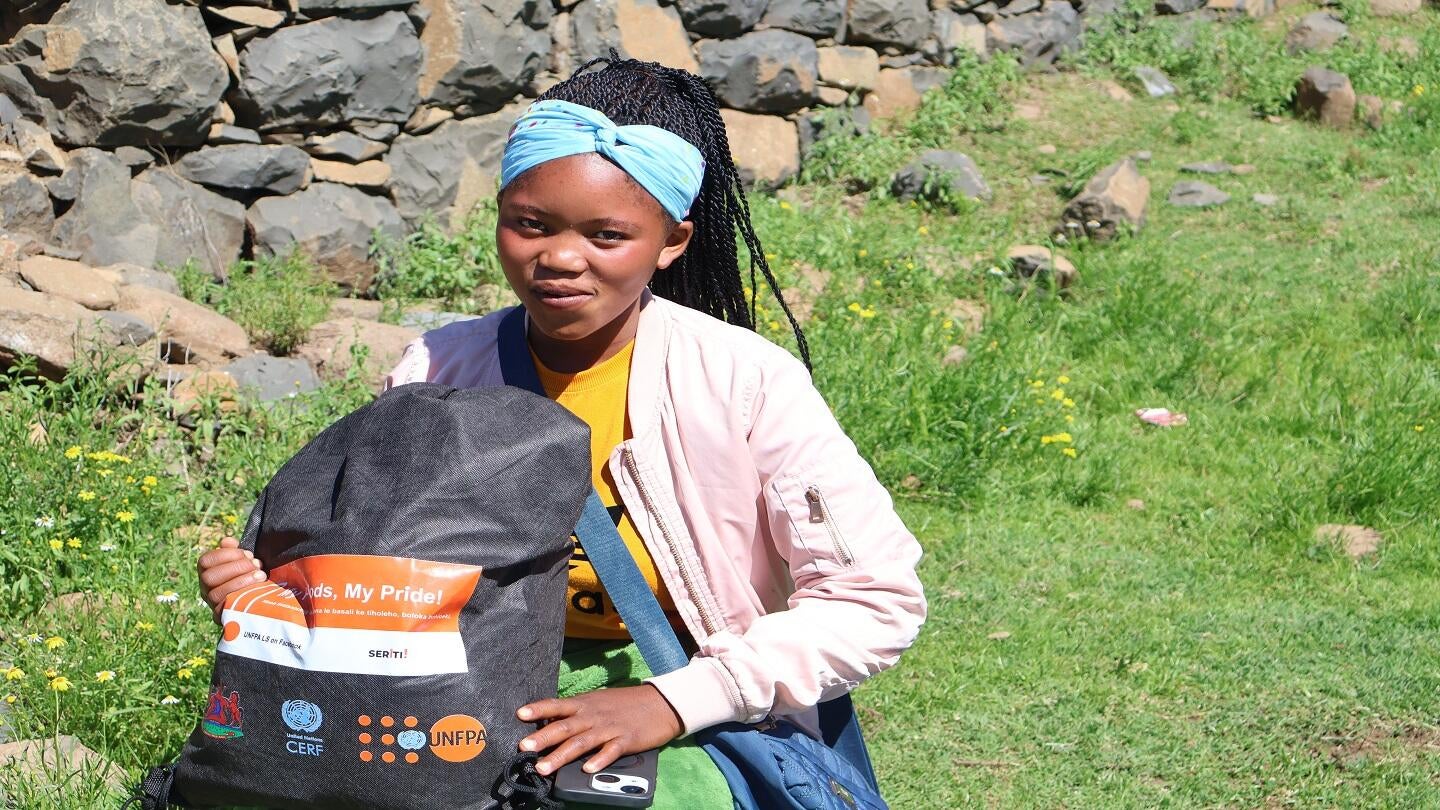UNFPA, the United Nations Sexual and Reproductive Health Agency, in collaboration with the District Management Authority (DMA) and key stakeholders, convened for two days (17 -18 February 2025) to assess progress and strategize the way forward in accelerating SRHR and GBV response in the context of addressing the ongoing food insecurity crisis. The food insecurity disaster, declared by the Prime Minister, the Right Honourable Sam Matekane in August 2024, spans from July 2024 to March 2025.
Following the declaration, UNFPA has been supporting the government of Lesotho in provision of essential Sexual and Reproductive Health and Rights (SRHR) and Gender-Based Violence (GBV) outreach services. The response has prioritized life-saving maternal health and family planning services for women and girls and information provision, while also restoring the dignity of vulnerable women and girls of childbearing age through distribution of dignity kits in Thaba-Tseka and Qacha’s Nek, the two districts included in the first phase of the humanitarian intervention.
In his remarks during the opening of the meeting, UNFPA Representative to Lesotho, Mr. Innocent Modisaotsile, underscored the urgency of ensuring continuous access to essential SRHR services and the need to safeguard women and girls from GBV amid the crisis.
“We are deeply concerned about the potential rise in GBV and the compounded vulnerabilities faced by women and girls. Additionally, we must address the alarming number of child marriages, where girls are married before reaching 18 years of age,” he emphasized.
Mr. Modisaotsile highlighted that the meeting provided a crucial platform to review lessons learned and accelerate the response to reach more affected women and girls. He also noted that discussions would help shape the second phase of the humanitarian response, which will expand to the top four additional districts experiencing severe food insecurity, according to the Integrated Phase Classification (IPC). These are Quthing, Maseru, Mohale’s Hoek, and Qacha’s Nek.
The Chief Executive Officer of DMA, Mr. Reatile Elias, reaffirmed DMA’s critical role in humanitarian crises. He stressed the importance of strengthened collaboration, particularly in light of the rapidly evolving global financial landscape. Mr. Elias also recognized the necessity of integrating SRHR and GBV response into crisis interventions.
District Administrators from the affected districts expressed their appreciation for being involved in the review and planning process, and pledged their commitment to ensuring smooth implementation at district level. The District Administrator for Thaba-Tseka Mr Tlali Mphafi, in particular, urged all implementing partners to fast-track activities in March 2025, the final month of the declared emergency period.
UNFPA took advantage of the gathering to introduce the second phase of the humanitarian response, supported by CERF, which will focus primarily on providing psychosocial support to vulnerable women and girls, including women with disabilities and survivors of GBV. The psychosocial services will be linked with other social protection programs to address both the visible and hidden impacts of the crisis. Social workers and relevant stakeholders will play a key role in implementing these interventions within the targeted communities.
Overall, the meeting reinforced the importance of coordination and collaboration in delivering life-saving assistance to affected populations. Humanitarian actors present at the meeting included representatives from the Department of Social Development, the Child and Gender Protection Unit, the Ministries of Health and Education, and the Lesotho Red Cross Society.
With a strengthened commitment to partnership and rapid implementation, UNFPA and its stakeholders aim to ensure that vulnerable women and girls receive the essential support they need during this critical period.


